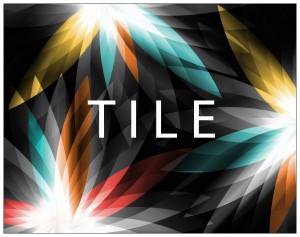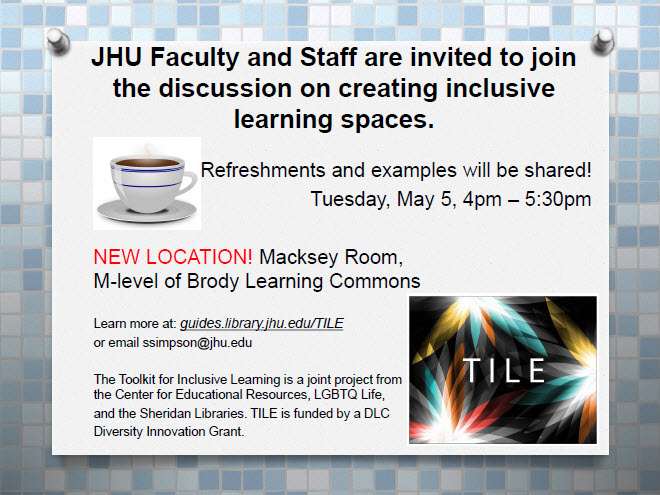 What we do in the classroom impacts what happens in the real world. Join the Toolkit for Inclusive Learning Environments, TILE, for a thoughtful discussion on classroom practices that can make lasting changes on how students perceive and communicate with the world.
What we do in the classroom impacts what happens in the real world. Join the Toolkit for Inclusive Learning Environments, TILE, for a thoughtful discussion on classroom practices that can make lasting changes on how students perceive and communicate with the world.
Funded by a Diversity Innovation Grant (DIG) of the Diversity Leadership Council (DLC), TILE is a growing resource for instructional faculty and staff that works to provide and support inclusive practices in the classroom. Sharing diverse perspectives and validating students’ and minorities’ varied experiences is a challenge for many faculty. Even those with the best intentions may unwittingly create classroom environments where students from minority communities feel uncomfortable or excluded. However, when executed effectively, an inclusive classroom becomes a layered and rich learning environment that not only engages students, but creates more culturally competent citizens.
TILE held its first session in March, providing examples and sparking discussion. The second session will be held Tuesday, May 5th from 4-5:30pm in the Macksey Room of the Brody Learning Commons, and you are invited! Registration is encouraged at the website, where you can also submit an example if you would like to share. You can use and read all about the examples shared at the first session on the Center for Educational Resources’ website, where the final repository will eventually be held. Refreshments will be served. See you there!
To explore the topic before the session, The Center for Integration of Research, Teaching and Learning (CIRTL), of which Johns Hopkins is a member, has some excellent diversity resources on its website, including a literature review, case studies, and a resource book for new instructors.
Questions and ideas can be routed to anyone on the TILE team. Project collaborators are Demere Woolway, Director of LGBTQ Life; Shannon Simpson, Student Engagement and Information Fluency Librarian, and Macie Hall, Senior Instructional Designer for the Center for Educational Resources, with support from the Sheridan Libraries and Museums Diversity Committee. Most important will be the various lecturers and faculty from across the disciplines who will work with us on developing the toolkit.

